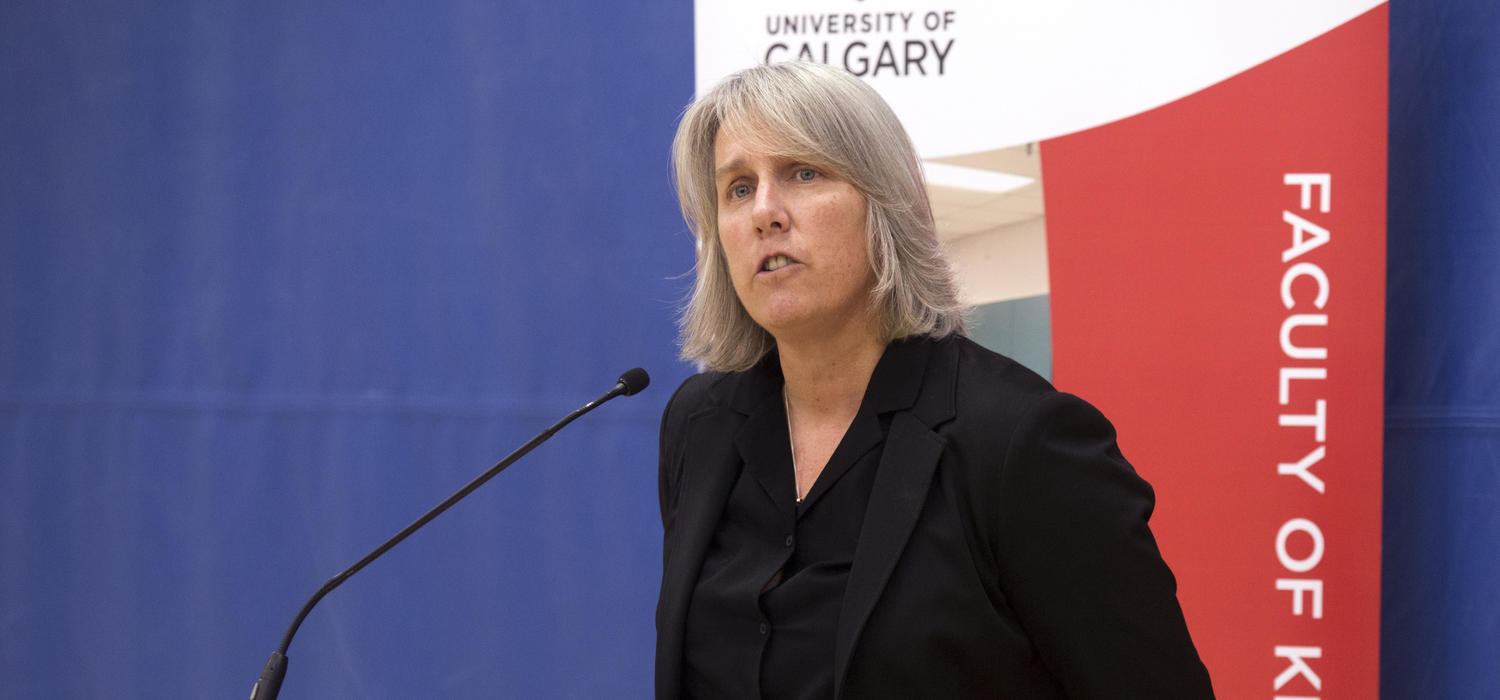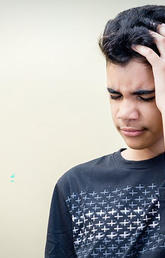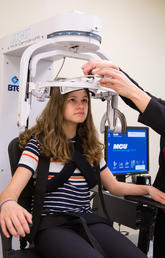Nov. 13, 2019
Ban on bodychecking in non-elite Bantam ice hockey significantly reduces injury

A new University of Calgary study shows that when bodychecking is banned in non-elite Bantam hockey (13 to 14 years old), the rates of injury are reduced by 56 per cent. The paper was recently published in the British Journal of Sports Medicine.
“While a 40-per-cent decline in concussions in the study was not statistically significant, the decline in the rate of injury is dramatic,” says Dr. Carolyn Emery, PT, PhD, in the Faculty of Kinesiology.
The results have led Dr. Emery to recommend a policy that would ban bodychecking in non-elite levels of Bantam regionally and provincially. This includes Bantam players in the lower 60 per cent by division of play. Currently, bodychecking in non-elite levels of Bantam is only disallowed in games regionally in areas such as Calgary and Edmonton, and in provinces such as Ontario and B.C.
More evidence of disallowing bodychecking
“I was not surprised to see a decline in injury with the Bantam league study, as the results were consistent with the Peewee study. We are seeing a growing body of evidence supporting the protective effect of policy disallowing bodychecking across age groups and levels of play. Results from the study evaluating such policy change in non-elite levels Midget will also be available soon,” says Emery.
Previously, Emery’s research informed policy that led to a bodychecking ban in Peewee ice hockey (11- to 12-year-olds) by U.S.A. Hockey in 2010 and Hockey Canada in 2013. Results of this ban showed a dramatic 64-per-cent reduction in concussions and a 50-per-cent reduction in overall injuries in Peewee hockey players.
“For a number of years, Dr. Emery has been a strong supporter of Hockey Canada’s programs and the evidence provided by the research group she leads has resulted in providing decision-makers with the confidence to make evidence-based decisions to support Hockey Canada’s effort to create a safer on-ice environment,” says Paul Carson, vice-president, hockey development, Hockey Canada.
“Hockey Canada feels strongly that sport injury research is an integral part of creating better education and training materials, improved application or games rules and an increased awareness of injury prevention and management.”
Prior to the bodychecking ban in Peewee hockey, the concussion rate was similar to the National Hockey League, with advocates for bodychecking arguing that the experience would better prepare Peewee players for the Bantam league. A subsequent study led by Emery found no difference in the risk of all injury or concussion for players with and without bodychecking experience. Ongoing research continues to address this question across multiple age groups and levels of play.
To understand rates of injury and concussion for the Bantam leagues, researchers compared leagues that allowed bodychecking with those that did not, over a two-year cohort study with support from community partners Hockey Calgary, Hockey Edmonton, B.C. Hockey, Hockey Alberta and Hockey Canada.
Other University of Calgary authors of the paper were Luz Palacios-Derflingher, Amanda Marie Black, Paul Eliason, Maciek Krolikowski, Nicole Spencer, Stacy Kozak, and Kathryn J. Schneider.
Carolyn Emery is a professor and the Chair of the Sport Injury Prevention Research Centre in the Faculty of Kinesiology and a professor in the departments of Pediatrics and Community Health Sciences in the Cumming School of Medicine at the University of Calgary. She’s a member of the Alberta Children’s Hospital Research Institute; Hotchkiss Brain Institute; McCaig Institute for Bone and Joint Health; and O’Brien Institute for Public Health. The study was funded by Alberta Innovates, Canadian Institutes of the Health Research and Hotchkiss Brain Institute. The Sport Injury Prevention Research Centre is one of the International Research Centres for Prevention of Injury and Protection of Athlete Health supported by the International Olympic Committee.




